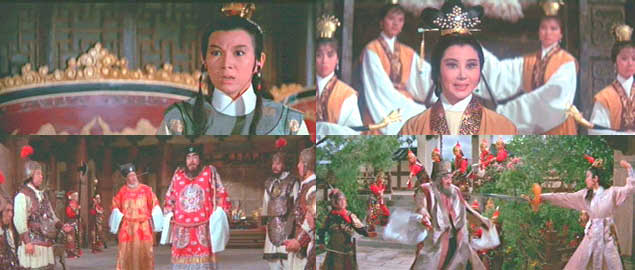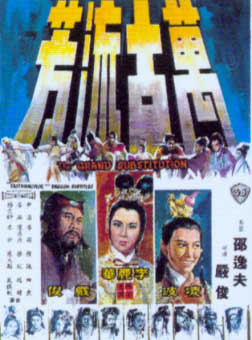
Reviewed by Marshall Crist

The Huangmei Opera film phenomenon seems to have thrived from approximately 1958 to 1967, beginning with such influential works as DIAU CHARN and THE KINGDOM AND THE BEAUTY and rolling to a halt with THE PEARL PHOENIX and the last gasp of 1969's THE THREE SMILES. THE GRAND SUBSTITUTION is neither the best nor worst of the bunch, but it is a very satisfying film. The cast and director were not strangers to the genre, and the plot and storytelling technique are dramatic and engaging.
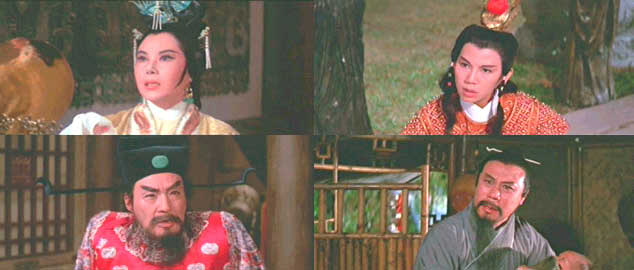
The film opens with China in jeopardy. The Emperor, Ling, is depicted as weak-minded and, as is so often the case in these films, more interested in leisure and distraction than tending to the nation's issues. To make matters worse, he is being unduly influenced by one of his Ministers, Tu (Li Ying), whose arch villainy is reminiscent of a certain Flash Gordon foe. With military threats being ignored, the patriotic Ching (Yen Chun/Yan Jun) is urged by his brother (Yeung Chi-hung) to leave his wife (Chen Yen-yen) and infant son and journey to the capitol to try to rectify the situation. Before any progress can be made however, a good Minister, Chiu (Ching Miao), is nearly the victim Tu's assassination attempt (by Tien Feng). Despite the attempt's failure, Tu is still able to twist the result and bulldoze the Emperor into having Chiu's entire family executed! Only the Princess (Li Lihua) is to be spared due to her royal lineage, but her unborn child is to be sacrificed as well. Ching hatches a plot to spare the infant, a nd at this point the suffering and melodrama truly begin.
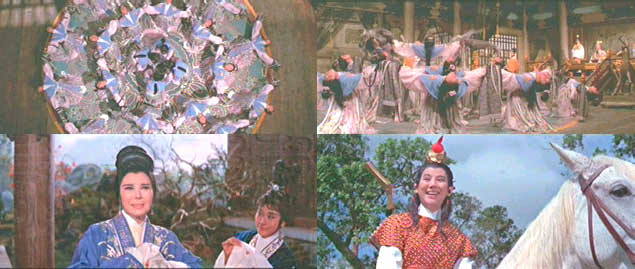
The plot of THE GRAND SUBSTITUTION has much in common with the classic literature of many cultures, and has story elements resembling those found in the Bible, Greek theatre, and Shakespeare, particularly in regard to concepts of infants switched at birth and of familial revenge. That said, the dominant theme seems to have more to do with patriotism and the sacrifices individuals must make for the sake of their nation. The drama is heightened because each character, whether it's Ching deciding which infant will live or a servant woman (Li Ting) remaining silent while being tortured, has the ability to end their own personal discomfort, yet they remain stoic in the face of adversity.
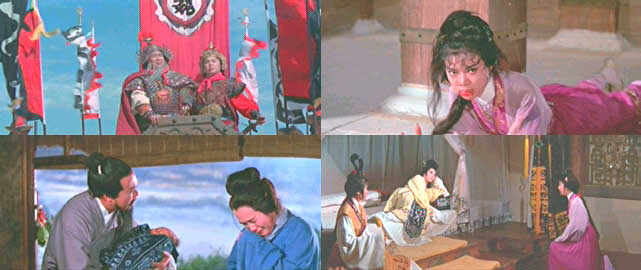
While the film is a musical, it is not as dominated by music as, say, THE KINGDOM AND THE BEAUTY. Most of the dialogue is spoken rather than sung. That said, the music in this film sounds more Eastern and classical than the (to my ears) somewhat folk and pop influenced music in THE KINGDOM AND THE BEAUTY. THE GRAND SUBSTITUTION is also the earliest film I've yet been able identify that has a certain piece of music that re-occurs in several Shaw films, including THE CAVE OF SILKEN WEB and THE THREE SMILES. In the GRAND SUBSTITUTION it is heard at about the five minute mark, while the Emperor watches some dancers perform. It is an instrumental piece, and I would be interested to know its origin and why it was used so frequently.
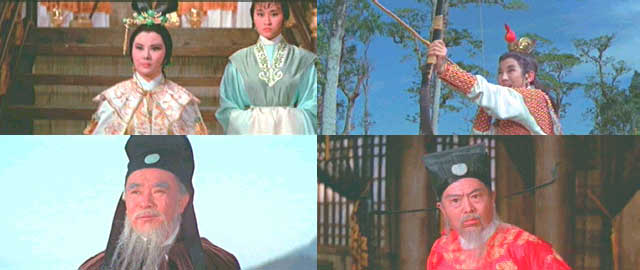
Director Yen Chun/Yan Jun was responsible for at least fifty films. He appears in the film, as does his real life wife, Li Lihua. One of the more memorable performances, however, is from Ivy Ling Po, who appears only during the last forty minutes or so. She plays a male character (who is 15 years old though Ivy was 25 at the time), as she so often did, and she makes a much more favorable impression here than with her larger role in THE THREE SMILES. She is probably best known for THE LOVE ETERNE, yet another male-drag performance.
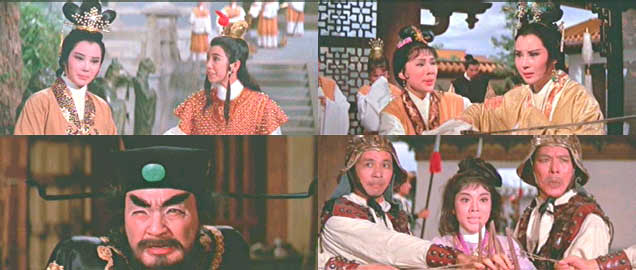
THE GRAND SUBSTITUION is able to squeeze a maximum of drama and audience interest from its story. The characters are faced with incredibly tough moral dilemmas. The film earned the Best Picture prize at the 1965 Asian Film Festival, and it is certainly well-produced and engrossing. THE GRAND SUBSTITUTION is successful in manipulating its audience (in the best sense) and creates moments of great tension and emotional payoff.
